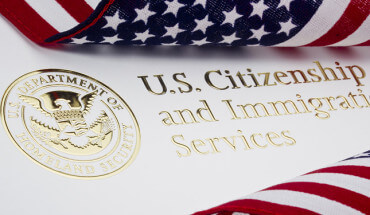The California Service Center Has Gone Rogue
There is something very troubling happening at USCIS’s California Service Center, affectionately known to some as the CSC. The CSC has been routinely denying meritorious visa petitions in a variety of categories, issuing boilerplate, inappropriate Requests for Evidence, and seemingly approving only a small fraction of the petitions it handles now. This trend has been getting worse in recent months, so much so that it’s becoming difficult to advise clients properly regarding the strength of their case.
An excellent case in point involves O-1 visas. The O-1 category is reserved for “aliens of extraordinary ability” in the arts, sciences, business, and many other fields. O-1 visa Petitions have to include objective evidence of a foreign national’s “extraordinary ability,” which might include proof that they have won major awards in their field, received publicity in well known magazines or newspapers, earn an exceptionally high salary, etc. Although the evidence submitted is objective, an adjudicator’s determination is inherently subjective: does this person, in light of the evidence, rise to the “O-1? standard of extraordinary ability for purposes of this visa category? Does fame and acclaim in the alien’s context require articles about the foreign national in the New York Times and Wall Street Journal, or is an article in the Oakland Tribune enough? Does an actor have to win an Academy Award, or is a People’s Choice Award sufficient to meet the O-1 standard? I imagine that every adjudicator has his or her own personal approach, and analyzes O-1 petitions based on their own unique criteria.
My problem with the CSC isn’t that different adjudicators have different standards for O-1 petitions – my problem is that the CSC, as a whole, has developed a culture of “no” when it comes to O-1 petitions. In years past, the CSC’s approach was more nuanced, based on the unique facts of each case; now, its attitude seems to be that only the best of the best can ever receive O-1 visas, and foreigners that have been in the U.S. for years in O-1 status are simply out of luck the next time they apply for a visa extension. This approach is extraordinarily unfair to all of those people that have strong O-1 cases, but are not necessarily at the very tip-top of their fields. It is also strange in light of the more lenient O-1 standards at the Vermont Service Center, the other Service Center that adjudicates O-1 petitions.
USCIS needs to develop consistent adjudication standards for all visa categories, and needs to coordinate training and quality control efforts at its four Service Centers. O-1s are, after all, only one example of the CSC’s abuse of the visa adjudication process. Many other visa categories have experienced a dramatic increase in RFEs and denials, including the H-1B, H-3, L-1A, and L-1B categories. The number of denials cannot correspond to a sudden influx of defective petitions, and probably isn’t related to better investigative efforts on USCIS’s part either (they have always been more than adept at investigating suspicious petitions). The increased rate of denials simply reflects a bad attitude on the CSC’s part, and is something that immigration advocates cannot allow to continue unchecked.





